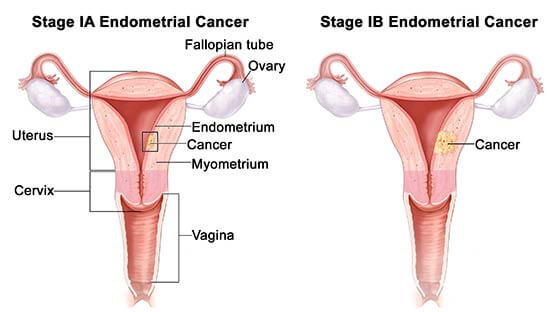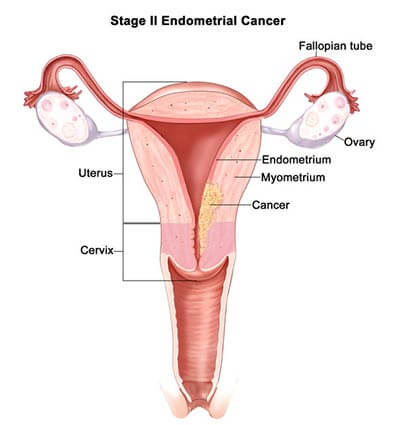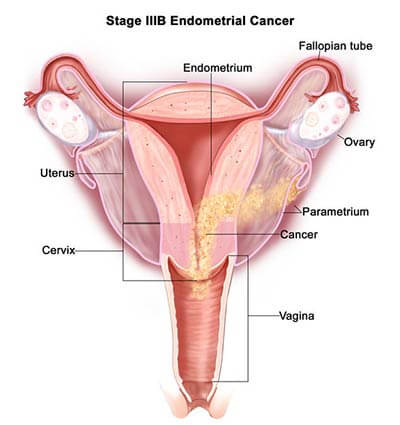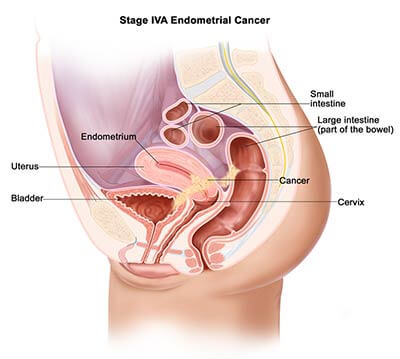Finding an endometriosis specialist is crucial to getting proper treatment for the disease. Important to see a well qualified and well-trained minimally invasive GYN surgical specialist who is board-certified and fellowship-trained. Dr. Marashi is an internationally recognized board-certified expert and renowned specialist in minimally invasive laparoscopic endometriosis surgery.
What Is Endometriosis?
 Endometriosis is a disease that affects women, usually between the age of 25 and 40. This disorder is one of the main causes of infertility among women.
Endometriosis is a disease that affects women, usually between the age of 25 and 40. This disorder is one of the main causes of infertility among women.
It never appears before puberty and always ends at the time of menopause due to a lack of ovarian hormones. The incidence of endometriosis is higher in infertile women, between 25-40 %, while in the general population, endometriosis has an incidence of 3 – 10 %.
Endometriosis is characterized by the growth of uterine tissue outside of the endometrium. This uterine tissue grows inside of the myometrium or even outside of the uterus.
Internal Endometriosis – When the uterine tissue grows inside of the myometrium, it is called Adenomyosis or Internal Endometriosis.
External Endometriosis – When the uterine tissue grows outside of the uterus, it is called External Endometriosis. The uterine tissue can be found almost in every part and organ of the body, but it is more common in the ovaries, peritoneum, rectum, intestine, vagina, vulva, bladder, liver, etc.
Until today the real cause of pelvic endometriosis is not known. However, there are several theories that try to explain it. The most acceptable theories include:
- Metaplasic theory
- Implantation theory
- Metastatic theory
- Surgical scar implantation
- Immune system disorder
Risk Factors For Endometriosis
Several factors related to the female reproductive system have been frequently associated with risks for this disorder. Hormonal variations have a considerable impact on pelvic disease development. Early menarche, high body mass index, and short menstrual cycle length may also be considered risk factors. Other endometriosis risk factors include:
- Never giving birth
- Uterine abnormalities
- A history of pelvic infections
- A family history of endometriosis (mother, sister, aunt, etc.)
Signs and Symptoms of Endometriosis
The first step to healing is distinguishing between various endometriosis symptoms. Since symptoms may differ from patient to patient, it’s important to know all the signs and risk factors. Our obgyn endometriosis specialists can pinpoint symptoms suggestive of this disorder, including:
- Pelvic pain – severe pain during menstruation, pain in the lower part of the abdomen
- Dyspareunia – pain during sexual intercourse
- Menorrhagia – occasional heavy periods
- Menometrorrhagia – bleeding between periods
- Abdominal pain
- Rectal pain
- Bleeding from anus
However, signs and symptoms depend on the affected part of the body. If, for example, the endometrial tissue grows in the nose, the affected woman will have nose bleeding every time she has the menstrual cycle. If the endometrial tissue develops in the bladder, suprapubic pain, blood in the urine, and an urge to urinate will be present.
See more about symptoms of endometriosis.
If the endometrial tissue develops in the intestines, diarrhea, constipation, blood in the stool, and even painful bowel movements will be present.
Four Stages of Endometriosis
- Stage I – minimal, lesions are only superficial, and few filmy adhesions are possible.

- Stage II – mild, deep lesions are present in cavum Douglasi, the extension of the peritoneal cavity between the posterior wall of the uterus and rectum.

- Stage III – the moderate presence of endometrioma’s on the ovary and more adhesions.

- Stage IV – severe, large endometrioma, extensive adhesions.

Infertility is the biggest problem of endometriosis. It is well known that endometriosis is one of the main causes of infertility among women of their reproductive age. It affects fertility by destroying the anatomy of the ovaries and pelvis, affecting the quality of the eggs and the implantation process, by changing the hormonal system, creating multiple adhesions, etc.
How is Endometriosis Diagnosed?
For the purpose of checking for physical clues of endometriosis, doctors might make use of the following procedures:
- Pelvic examination: During this procedure, your doctor will manually feel areas in your pelvis for abnormalities;
- Pelvic ultrasound: This test uses high-frequency sound waves to create images of the inside of your body;
- Laparoscopy: Your doctor may refer you to an endometriosis surgeon for a procedure that allows the surgeon to view inside your abdomen (laparoscopy). Laparoscopy can provide information about the location, extent, and size of the endometrial implants;
- Magnetic resonance imaging (MRI): This is an exam that uses a magnetic field and radio waves to create detailed images of the organs and tissues within your body.
- Tumor markers CA – 125
Endometriosis is a disease that can’t be cured. However, medical or surgical treatment can help ease the symptoms and even help the woman get pregnant. Endometriosis specialists in Brooklyn recommend conservative treatment first. If medical treatment results without success, then surgical treatment is necessary.
Pelvic Exam for Endometriosis
A pelvic exam for endometriosis is a critical part of the diagnostic process. It is a test where a healthcare provider checks the inside of your vagina and rectum for any signs of endometriosis, such as tenderness, lumps, or scarring. A pelvic exam alone cannot tell if you have endometriosis, but it can help your gyn doctor decide if you need further testing. Early detection and diagnosis of endometriosis is essential so you can start treatment immediately.
Medical Treatment of Endometriosis:
- NSAID – for the pain
- Hormonal therapy– like hormonal contraceptives and Gonadotropin-releasing hormone (Gn-RH) agonists and antagonists, Danazol.
Surgical Treatment of Endometriosis:
- Conservative surgery
- Radical surgery – hysterectomy and the removal of both ovaries (see: Laparoscopic Treatment of Endometriosis)
Assisted reproductive technologies are used in cases when there are difficulties conceiving.
Frequently Asked Question
How Common Is Endometriosis?
Researchers have discovered that nearly 10 percent of women or more than 6.5 million women in the United States suffer from this condition. Endometriosis specialists say that it is especially common among women in their 30s and 40s, which makes it harder to get pregnant.
How Serious Is Endometriosis?
This health condition tends to cause inflammation and scarring of the tissues in the pelvic cavity. However, it can be dismissed by doctors assuming that a woman is just experiencing bad menstrual cramps. When this disease progresses, scarring can occur in different parts of the body. Many women experience severe pain with the disease, often constant, and can also suffer from abdominal bloating. Therefore, it is highly important to find a qualified endometriosis surgeon for timely diagnosis and treatment.
What Are the Causes of Endometriosis?
The exact cause of endometriosis is still unknown, and there are several theories regarding its cause. However, there is no theory yet that has been scientifically proven. The oldest theory states that endometriosis occurs because of the process called retrograde menstruation. It happens when menstrual blood flows back through a person’s fallopian tubes into the pelvic cavity instead of leaving the body through the vagina.
How Much Does Endometriosis Treatment Cost?
The cost generally depends on the doctor and whether it’s a medical or surgical treatment. If you have insurance, the cost for anti-inflammatory drugs may be covered, and the co-pay is around $60-$80. The average cost for Laparoscopy is between $1,700 and $5,000. Depending on your condition, our endometriosis specialists may prescribe prolonged hormone therapy lasting for 3 to 9 months. Hormone therapy for endometriosis can cost around $150 per 100 capsules.
Do you have questions? Would like to schedule an appointment with the top-rated Endometriosis surgeon in Brooklyn, please contact our Brooklyn Heights office.
Dr. Amir Marashi, MD
Brooklyn GYN Place
142 Joralemon Street, Suite 4CF
Brooklyn, NY 11201
(Brooklyn Heights)
718-624-0604
Would like to schedule an appointment with the top obgyn doctor in Downtown, Brooklyn, please contact our Brooklyn Heights office.
Our office has a 24/7 answering service to address
any Emergencies.
Disclaimer:
The information provided on this site is intended to educate the reader about certain medical conditions and certain possible treatment. It is not a substitute for examination, diagnosis, and medical care provided by a licensed and qualified health care professional. If you believe you, or someone you know suffers from the conditions described herein, please see your health care provider immediately. Do not attempt to treat yourself or anyone else without proper medical supervision.
- Our office has a 24/7 answering service to address any emergencies.




